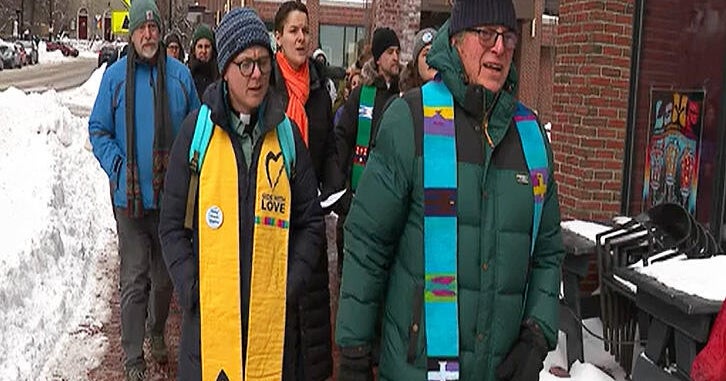Boycott of Brunei-linked hotels over anti-LGBT laws draws Ellen DeGeneres and Elton John
- Celebrities including Ellen DeGeneres and Elton John say they are boycotting Brunei-owned hotels over the country's implementation of harsh new criminal sentences.
- The penalties, based on Islamic law, include death by stoning for gay sex and amputation for theft.
- The boycott was kicked off by actor George Clooney last week, who admitted he's stayed in some of the luxury hotels owned by the Brunei Investment Agency, saying he "hadn't done his homework."
- Amnesty International has condemned Brunei's new penal code as "cruel and inhuman."
A boycott of Brunei-owned luxury hotels is gaining support from celebrities including Ellen DeGeneres and Elton John as the country on Wednesday implemented what it called Islamic criminal laws including death by stoning for gay sex.
The boycott was sparked last week in an opinion piece by actor George Clooney, who said a boycott of the high-end hotels — where rooms can start at $600 a night or more — is necessary to keep money from flowing "directly into the pockets of men who choose to stone and whip to death their own citizens for being gay or accused of adultery."
The nine hotels owned by Brunei are:
- The Dorchester, London
- 45 Park Lane, London
- Coworth Park, UK
- The Beverly Hills Hotel, Beverly Hills
- Hotel Bel-Air, Los Angeles
- Le Meurice, Paris
- Hotel Plaza Athenee, Paris
- Hotel Eden, Rome
- Hotel Principe di Savoia, Milan
DeGeneres urged her fans to boycott the properties in a Tuesday tweet, writing, "Tomorrow, the country of #Brunei will start stoning gay people to death. We need to do something now. Please boycott these hotels owned by the Sultan of Brunei. Raise your voices now. Spread the word. Rise up."
Singer Elton John tweeted, "We must send a message, however we can, that such treatment is unacceptable."
In his opinion piece last week, Clooney noted that he's stayed at many of the hotels owned by Brunei, a small nation located on the island of Borneo, but said he was unaware of their ownership "because I hadn't done my homework." He acknowledged that a boycott is unlikely to change Brunei's laws, but said consumers must decide whether they want their money to support laws that violate human rights.
"Are we really going to help fund the murder of innocent citizens?" he wrote. "I've learned over years of dealing with murderous regimes that you can't shame them. But you can shame the banks, the financiers and the institutions that do business with them and choose to look the other way."
On Wednesday, Amnesty International slammed Brunei's plans to implement what the rights group called "vicious punishments."
"To legalize such cruel and inhuman penalties is appalling of itself," Rachel Chhoa-Howard, Brunei researcher at Amnesty International, said last week. She said some of the potential offenses "should not even be deemed crimes at all, including consensual sex between adults of the same gender."





